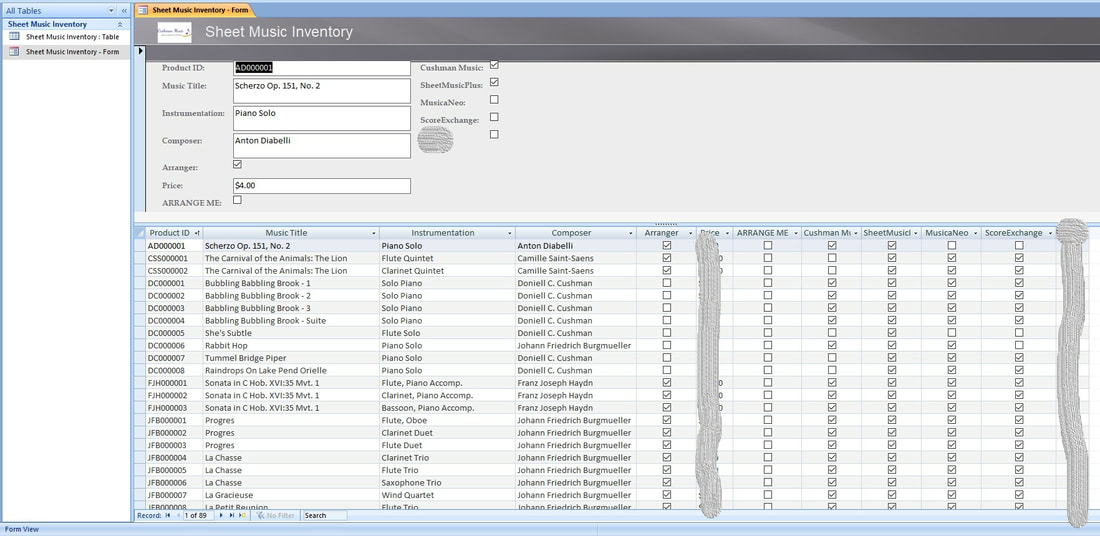Welcome!If you have a comment, we'd love to hear it. Be sure to SHARE this blog! AuthorDoniell Cushman loves to use her teaching experiences to inspire ways to improve music, teaching, and learning. Archive
February 2023
Categories |
Back to Blog
Create a Music Database1/6/2019 The five essential entrepreneurial skills for success: Concentration, Discrimination, Organization, Innovation and Communication. ~ Harold S. Green I had a dream years ago when we lived overseas in Germany. Part of it was due to boredom, part of it aspiration, and part of it convenience. This dream was catapulted by a class I took in college called Information Systems Management. I've always loved Access by Microsoft. I'm an odd duck, what can I say? But seriously, the ability to organize and filter things, create forms and reports ... it did what Excel can do, yet so much more. I wanted to see everything I owned and was (and still am) acquiring in key signatures, difficulty levels, publishers, cost, etc. The benefits of creating a database of your music library are manyfold. So, let me give you a lending hand as to what you can do. Database Ideas:
Now how can you sort this material? By this I mean, what information do you want accessible at your fingertips? Make primary indexes to be book numbers or ISBNs. Titles of books and pieces should be written with overly specific information. Have two sources for the Moonlight Sonata? Use Opus numbers or organizational systems (WoO, K. numbers, etc.), or you could even put a parenthetical note for the arranger, book, and so forth, or editions.
The next step would be to create a form to fill out for each database, and reports. These should automatically update in the software you use, so that as soon as you fill out a form, the information is added. Ideas for Reports would include: Music by Composer (and make sure composer names are entered consistently with first and last names) Music by difficulty level Music by key signature Duets Pieces with accompaniment Music by instrumentation As a teacher, this is super useful. I can filter my results or pull a report for a student at a certain level, in a certain key signature and by a specific genre without having to leaf through hundreds of my books and materials. I hope this post gives you excellent ideas on how to organize your library, studio, office, or classroom. I know it seriously helps me. Yes, it takes some time setting up and getting through entering everything you own ... but in the end, you have something like this to look forward to:
0 Comments
Read More
|

 RSS Feed
RSS Feed
